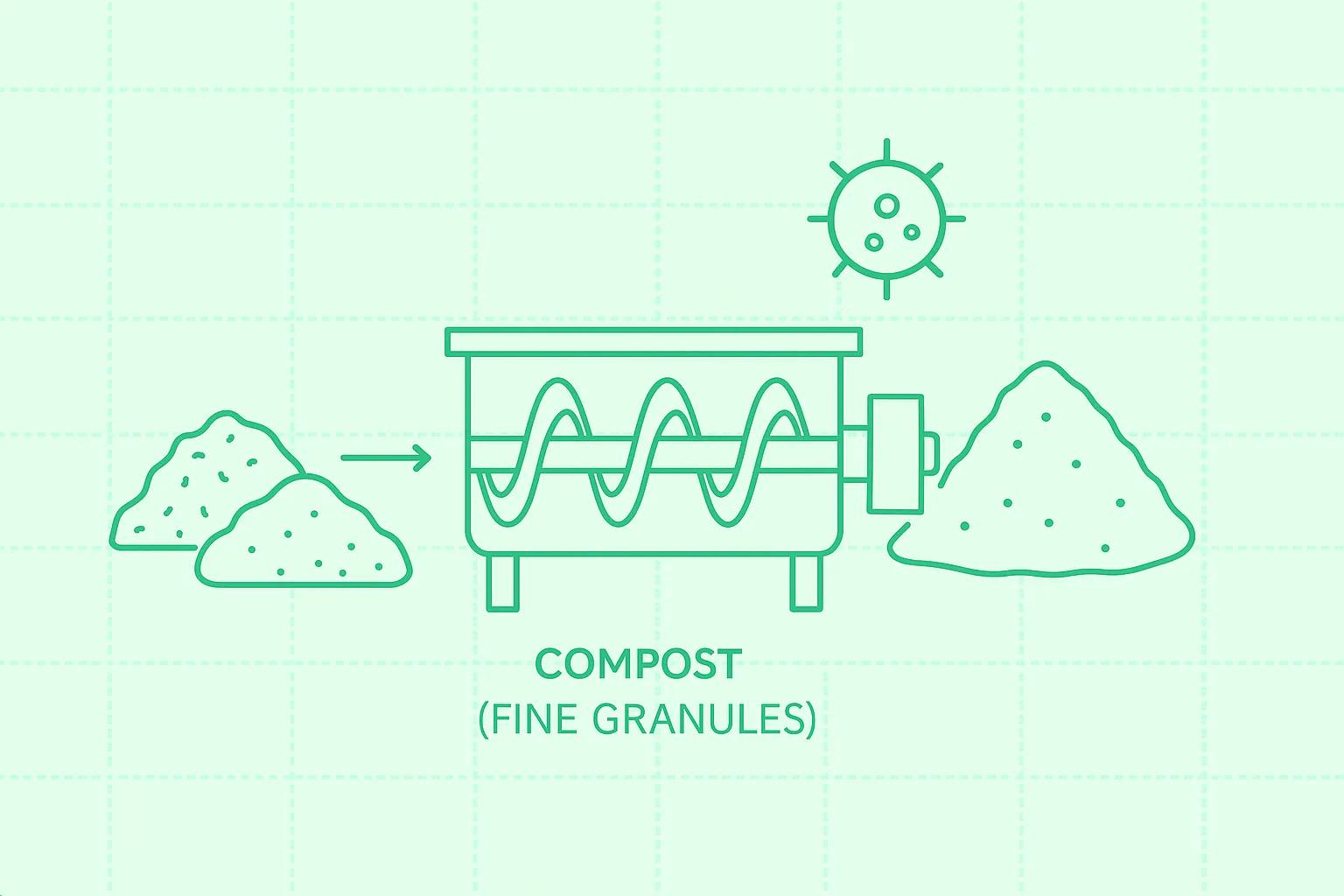
Composting Chicken Manure Using Microbial Consortia
A laboratory-scale evaluation of Torus Bioinoculum for nutrient stabilization and odor suppression in poultry manure composting.

The Challenge
Chicken manure presents a unique composting challenge due to its high nitrogen content and low C:N ratio. Without proper management, it can release strong odors and lose valuable nutrients during decomposition. At Torus Biosciences, we developed a solution using our proprietary microbial consortia to address these challenges.
Our Approach
We conducted controlled fermenter trials using our Torus Bioinoculum to compost chicken manure. The process involved:
-
Initial Setup:
- Fresh chicken manure (75-80% moisture)
- Added amendments:
- Sodium bentonite (0.1%) for volatile adsorption
- Calcium carbonate (1%) for pH buffering
- Calcium sulfate (1%) for sulfur balance
-
Composting Process:
- Maintained 35-40% moisture through daily monitoring
- Manual aeration twice daily
- Applied Torus Bioinoculum after 4 hours of preconditioning
- Total fermentation duration: 15 days
-
Microbial Action: Our consortia included:
- Lignocellulolytic fungi for fiber breakdown
- Ammonia-oxidizing bacteria for nitrogen capture
- Bacillus spp. for pathogen control
- Sulfur-tolerant bacteria for odor reduction
Results
After 15 days of composting, we achieved:
| Parameter | Result | Significance |
|---|---|---|
| Organic Carbon (OC) | 25.0% | Reduced from initial 30-35% |
| Available Nitrogen | 1.67% | High retention rate |
| Electrical Conductivity | 1.03 mS/cm | Safe for agricultural use |
| pH | 8.0 | Optimal for compost |
| Ammonia Odor | None detected | Successful nitrogen stabilization |
| Physical Structure | Fine granules | Uniform, dry, free from clumps |
Process Analysis
The composting process showed consistent temperature maintenance between 24-32°C throughout the 15-day period, with optimal conditions for microbial activity. The pH stabilized at 8.0-8.8, creating an ideal environment for nutrient retention and odor control. The process demonstrated excellent moisture management, maintaining levels between 20-30% throughout the composting period.
Process Efficiency Metrics
- Microbial Population: Consistent at 0.8 × 10^8 CFU/mL
- CO2 Evolution: Ranged from 777-979 ppm, indicating active decomposition
- Moisture Management: Successfully maintained between 20-30%
- Ammonia Control: No detectable ammonia in final product (confirmed by Nessler’s test)
Conclusion
Our study demonstrates that Torus Bioinoculum effectively composts chicken manure within a 15-day timeframe, producing a high-quality, odor-free compost with excellent nutrient retention. The process successfully addresses the key challenges of chicken manure composting:
- Complete elimination of ammonia odor by day 5
- Preservation of valuable nutrients in plant-available forms
- Production of a stable, mature compost suitable for agricultural use
- Achievement of complete decomposition within a commercially viable timeframe
These results validate our approach for both on-farm and urban composting applications where odor control, nutrient efficiency, and rapid decomposition are essential.
For more information about our composting solutions or to discuss potential applications, please contact our research team.
Written by Arun Kumar Gandlur on